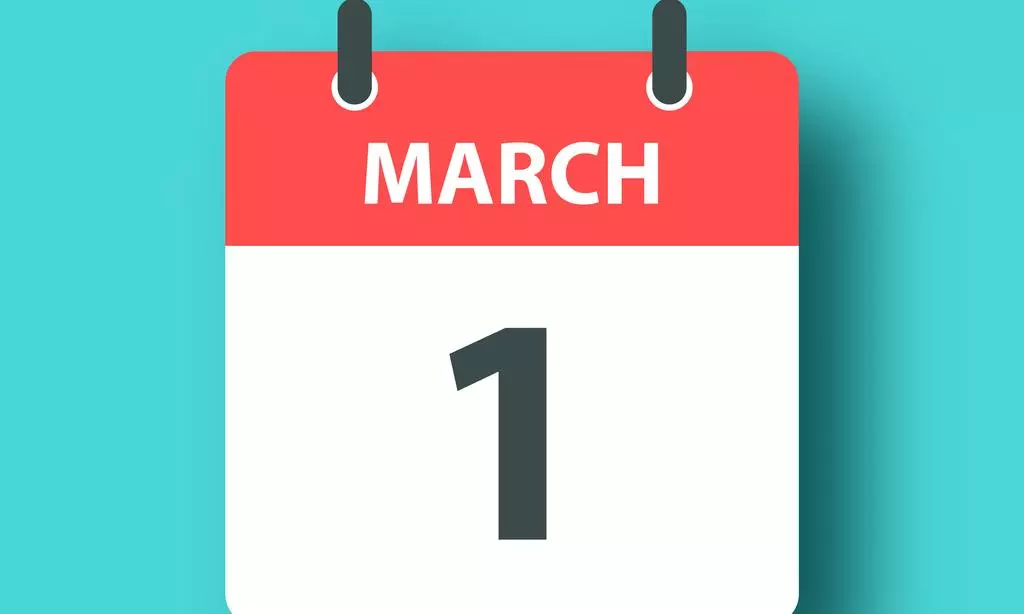
Aadhaar card rules to Paytm: 6 things that change from March 1
From Paytm Payments Bank ban to change in Nifty Bank contract cycle, some new rules will come into effect from March. Know these to avoid any hassles

Some rules related to the stock market and other financial matters are changing from March 1, 2024. Here is a list of the major changes.
1. Nifty Bank contract cycle
All existing monthly and quarterly contracts of Nifty Bank will expire on the last Wednesday of the expiry month or quarter, according to a National Stock Exchange (NSE) revision made earlier.
So far, the last Thursday of the month or quarter has been used as the expiry day. An NSE circular had said if Wednesday is a trading holiday, the expiry day would be the previous trading day.
The change will become effective from trade date March 1, 2024.
The NSE had also said the expiry day of all existing contracts available for trading on March 1 will be preponed from February 29 end of the day.
2. Paytm: What works, what doesn’t
The deadline for the ban on Paytm Payments Bank has been extended to March 15. Here is what will work and what won’t after that:
- You can continue to use the Paytm app to make bill payments and recharges if you have linked your Paytm to any authorised banks such as ICICI, HDFC, SBI, etc. Only those who opened an account with Paytm Payments Bank will be affected by the ban.
- Your Paytm QR, Soundbox, and Card Machine won’t be affected. These will continue to work after March 15.
- You can continue to use Paytm Payments Bank Wallet for withdrawal or transfer as long as you have balance in your wallet. However, you won’t be able to make any deposits in it after March 15. All refunds and cashback will still be credited to your wallet.
- You can still use a FASTag / NCMC Card issued by Paytm Payments Bank but not be able to recharge or add money to these after March 15. You have the options of using up the amount or closing your FASTag / NCMC Card and requesting the bank for a refund.
3. No new e-way bill, yet
The National Informatics Bureau (NIC) had released an advisory on new e-way bill rules on January 5, which were supposed to come into effect from March 1, 2024. However, it withdrew the advisory five days later, on January 10.
The earlier advisory, which had been widely reported, said that from March 1, all e-way bill generation would be blocked if businesses did not include the necessary e-invoice details, such as the Invoice Registration Number (IRN).
Since the NIC has withdrawn the original advisory without further details, taxpayers can continue to follow the current processes.
4. Free update of Aadhaar details
You can update your Aadhaar details for free on the myAadhaar portal till March 14. The Unique Identification Authority of India (UIDAI) had extended the deadline by three months from December 14 to March 14. At the physical Aadhaar centres, you have to pay a fee of Rs 50.
Unless the UIDAI extends the deadline again, you have time till March 14 to enjoy the free update service.
5. MSME payment rule
Buyers of goods and services from micro and small enterprises have a window of 45 days to clear the dues by March 31, 2024, for the FY 2023-24, according to a new central government rule. That is, all those who bought goods and services till February 15 would fall in that category. If a buyer fails to make the payment by March 31, the pending payment will be considered taxable income.
6. One-hour trade settlement?
The Securities and Exchange Board of India (SEBI) had declared last September that it plans to significantly reduce the time taken for trade settlements in the Indian stock market. SEBI had said it was gearing up to implement a one-hour settlement of trades by March 2024. However, there has been no further update on this move. If it gets implemented in March, it will come as a huge boon to investors.

